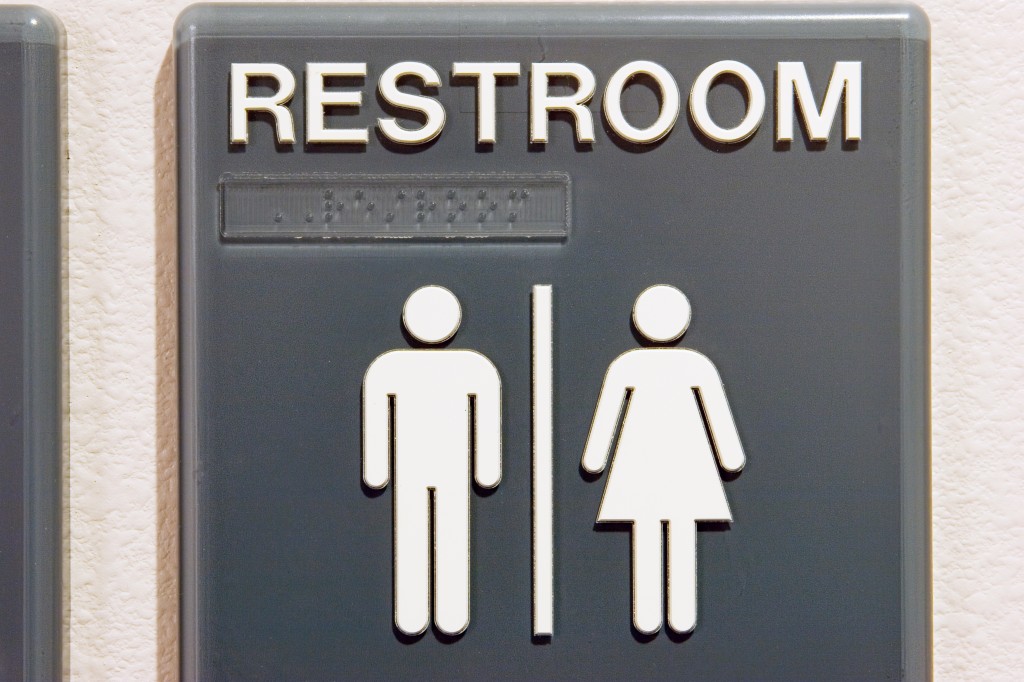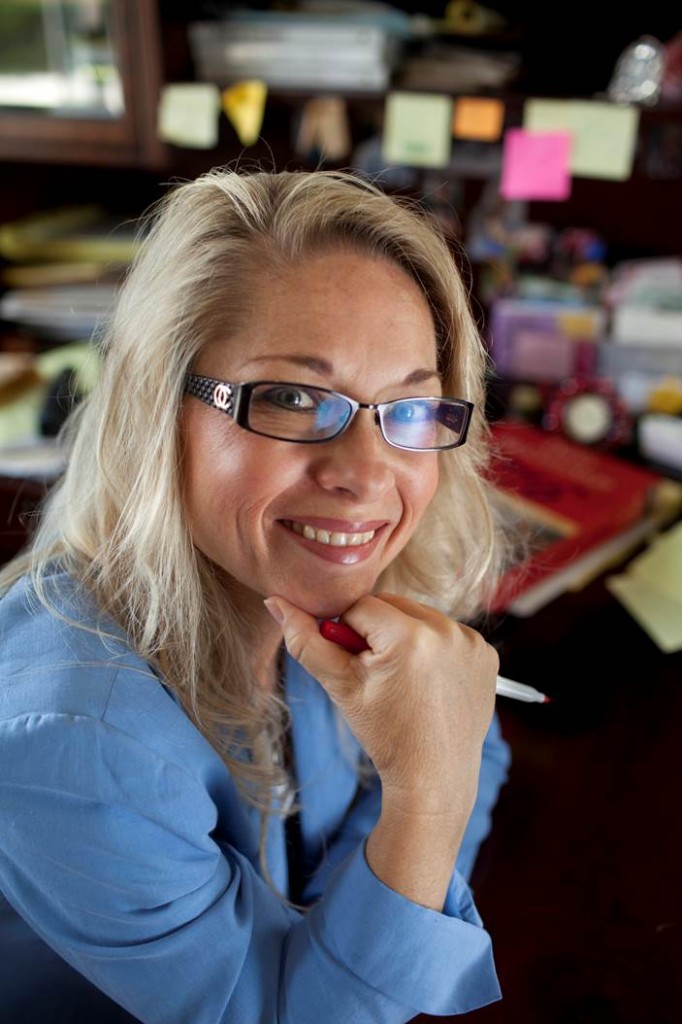Fourth-grade teacher Rebecca Friedrichs doesn’t support a new state law allowing self-identifying transgender children in the public school system to choose which bathrooms, locker rooms and shower facilities they will use.
Allowing these students to occupy the same private space with classmates who don’t share their biological traits, Friedrichs believes, puts the interests of a few ahead of those of the many — and is potentially embarrassing and damaging for other students. She says she feels the same way about permitting transgender children to join all-male or all-female teams as they see fit.
Frankly, she says, “it’s hard for me to protect the modesty of other children.”
Friedrichs, a 27-year teaching veteran who works in Anaheim, Calif., also thinks it is a mistake for the state teachers union to push so hard for tenure to protect bad teachers. She supports school choice for parents because it helps poorer families get more out of the educational system.
And she backed Proposition 8 — the 2008 ballot initiative that upheld marriage in California as the union of a man and a woman — because she believes it is bad for society.
“If the union is on one side, it’s a sure bet I’m going to be on the opposite side.”
Yet, Friedrichs spent money to advocate the “transgender student” bill. She also spent money to push for more protections for tenured teachers, and to oppose school choice and Prop 8.

California’s ‘Bathroom Bill,’ some teachers say, put the interests of a few ahead of the many. (Photo: Hemera/Thinkstock)
Why would she pay to advance policy positions she opposes? Because, as a teacher in a big union state that doesn’t revere the “right to work,” she must.
Friedrichs used to belong to the California Teachers Association, the state affiliate of the powerful National Education Association. She volunteered for the teachers union in her school and attended CTA’s state conferences.
But she left when their disagreements began to pile up.
“If the union is on one side of a debate, it’s a sure bet that I’m going to be on the opposite side,” Friedrichs quips in an interview with The Daily Signal.
So she joined the Christian Educators Association International, a non-profit group that represents Christians in public schools.
Under current law, Friedrichs still must, in her words, “spend part of my workday paying for political activism that I don’t support and that I think is actually harmful to education.”
This is wrong, she says. And she’s going to court to prove it.
Taking On the Teachers Unions
Friedrichs and nine other California teachers — along with the Christian Educators Association International — sued the CTA, several local unions and the NEA.
The teachers’ claim: Union rules and state law violate the First Amendment by requiring them to fund speech and advocacy they don’t support.
California is an “agency shop” state. Teachers pay about $1,000 per year in union dues even if, like Friedrichs, they don’t belong to the union.
Non-members can apply to be reimbursed for the portion of their dues that goes to political advocacy, usually $300 to $400. But it is not easy, and it brings scrutiny and stigma from the union.
Moreover, the teachers union itself decides how much to spend on political activities. It sends a letter with the figures each year, and non-members have six weeks to submit an official objection and then get in line for a rebate.
This process grew out of the Supreme Court’s 1977 decision in Abood v. Detroit Board of Education, which said public employees who object to political expenditures still have to pay all their dues up front but could receive a refund later. This “opt out” arrangement later was extended to include private unions in a 1986 ruling, Communication Workers v. Beck.

‘They are using my money for their agenda,’ Rebecca Friedrichs says of the state teachers union. (Photo: Greg Schneider)
The Christian plaintiffs in Friedrichs v. CTA argue the opt-out arrangement doesn’t sufficiently safeguard their free speech rights.
“The union decided what is political and what isn’t,” Rebecca Friedrichs says.
“We are only allowed to opt out of the overt political portion of the dues, and the union decided what is political and what isn’t,” Friedrichs says, adding:
We disagree with their assessment. Teachers are afraid to opt out because they don’t want to suffer the consequences of being a fee payer. They lose their liability insurance, and they are labeled by union leaders. That’s why we need an opt-in system, so the dues [for advocacy] are voluntary.
‘It’s the Unions Who Are Free-Riding’
This all began in the mid-1900s, when the U.S. Supreme Court “carved out an exception to the First Amendment” for labor law, says Terry Pell, president of the Center for Individual Rights:
In an effort to maintain labor peace, the court reasoned it was necessary to outlaw ‘free riders’ who might object to the union stance but still draw benefits from collective bargaining.
The Center for Individual Rights is handling the Friedrichs case along with the international law firm Jones Day.
CTA, the state affiliate of the National Education Association, argues the premise of Friedrichs’ case is flawed because union membership is voluntary and the refunds safeguard teachers’ free speech rights.
“Individuals who chose to join pay union dues,” NEA’s general counsel says.
“Individuals who chose to join pay union dues,” NEA General Counsel Alice O’Brien says. “We are proud that some 3 million educators have chosen to join together to form NEA.”
But Friedrichs — who spoke in August at The Heritage Foundation as part of a panel on Americans who want to leave unions — isn’t persuaded. Nor do she and the other plaintiffs see merit to the “free rider” argument.
“There’s a big difference between what the union views as a benefit and what I view as a benefit,” Friedrichs says. “It is the unions who are free-riding on me. They are using my money for their agenda.”
Karen Chavez-Cuen, another plaintiff, has taught elementary school music for 20 years in the Chino Valley Unified School District. In an interview with The Daily Signal, she says the opt-out system is flawed because much of the bargaining process itself is “inherently political.”
Take tenure protection, Cuen says:
The union is just relentless in pushing for more protection for ineffective teachers, and it’s impossible to fire them. And the rest of us have to cover for them and undo the damage to our kids. It’s fine that I get a refund, but there’s a make-believe distinction between what’s political and what’s not.
The case has reached the Ninth Circuit Court of Appeals. The complaining teachers have asked the court to expedite the case to the Supreme Court on the basis that only the nation’s highest court has the authority to overturn its own precedent. The Ninth Circuit has yet to rule on that request.
‘Wouldn’t It Be Wonderful?’
Meanwhile, an organization called Privacy for All Students is working to place a referendum on the November ballot that would allow voters to overturn the law providing for transgender students to have their choice of facilities. The law, officially titled the School Success and Opportunity Act, is commonly referred to as “The Bathroom Bill.”
Because of a dispute over the validity of certain signatures, it isn’t clear the proposed referendum will qualify for the ballot.
“We have options for transgender students such as adult bathrooms that could be available to them whenever needed,” Friedrichs says. “But it’s hard for me to protect the modesty of other children because of a bill that has been pushed with my money.”
If the case is fast-tracked to the Supreme Court next year and the plaintiffs receive a favorable ruling, it would mean the union would have to solicit voluntary contributions for political causes such as transgender rights.
“What we are asking for is pretty straightforward,” Karen Chavez-Cuen says.
“Wouldn’t it be wonderful if the only people joining the union and making donations were the ones who wanted to do so voluntarily?” Cuen says. “And wouldn’t be wonderful if the people who didn’t want to join and make these contributions had that freedom? What we are asking for is pretty straightforward.”


























